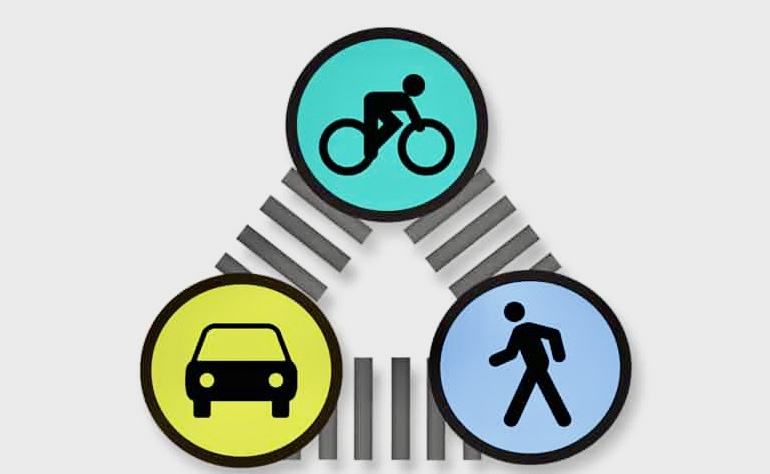The Inquirer discovers cops don’t enforce traffic laws
I am not egotistical enough to think of this as my legacy, but I was tickled by the recent Inquirer 1 ½-page report on the plummeting number of traffic tickets being written by the Philadelphia Police Department.

Why would I be tickled? Because a decade ago I started an annual report on various violations — tickets written for automobiles, bicycles, and pedestrians.
My primary purpose was to show the declining enforcement against lawless behavior on city streets. The lawlessness was obvious to anyone on the streets, plus the rising numbers of crashes.
A secondary purpose was to show that rampant illegal behavior by bicyclists was, and is, almost completely ignored by cops.
Is illegal bicycle behavior really important? Almost all cyclists ignore red lights, except when cross traffic makes it too dangerous. And most of them excuse it, despite that bikes are classified as vehicles under state law.
It is important because any violation of law generates disrespect for law. You may have noticed the growing number of motorized bicycles, and heavyweight motorcycles, too, that now ignore red lights.
Cars, too.
Like the “broken window” theory of governance, if you allow broken windows to send a message that no one cares, then you get squeegee guys who harass motorists, homeless people blocking doorways, graffiti, aggressive panhandling, and other behaviors that make the streets feel unsafe.
Same thing on the roads. Unchallenged bad behavior generates more bad behavior.
It takes a toll on civic life.
Noting that “city police essentially stopped issuing traffic tickets,” an Inquirer editorial concluded that “the lack of enforcement has resulted in more crashes and deaths.”
To which I say, no shit, Sherlock.
Ten years before the Inquirer, I documented that in 2011, cops wrote 150,444 tickets to motorists, a number that had collapsed to 84,820 by 2017 (and down to 45,267 in 2023, the Inky reported.)
There were 80 tickets written to bicyclists in 2011, only 45 in 2017. Pedestrians got tickets 373 times in 2011, but up to 483 in 2017, the only category with an increase.
Cops were reluctant to tell me why the numbers had dropped through the floor. One police spokesman jokingly suggested that maybe Philadelphians were becoming safer drivers.
There is no evidence of that, pretty much the opposite.
Cops are getting more active now because more citizens are complaining about reckless driving, according to Deputy Police Commissioner Michael Cram.
And now we have speed cameras and red-light cameras that have reduced crashes by 36% on Roosevelt Boulevard, one of the nation's most dangerous highways. Cameras also are coming to Broad Street, which sometimes seems like the Daytona International Speedway.
Yes, I know some motorists have complaints about the cameras. Those motorists are speeders.
Yes, I know some believe the cameras are just income producers. Well, sure they do, but the main benefit is getting speeders to slow down.
I know some regard that as an unconstitutional intrusion on their right to act like ayeholes, but that’s too damn bad.
Enforcement of the law results in safer, more predictable roads.
I know “enforcement” is a trigger word for some of my progressive friends, but that’s also too damn bad.
Safer roads aren't authoritarian.



